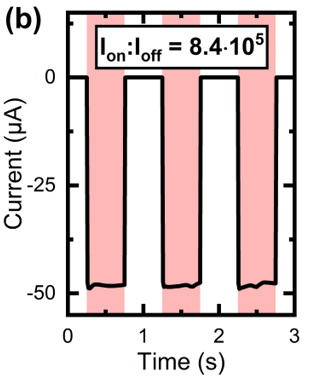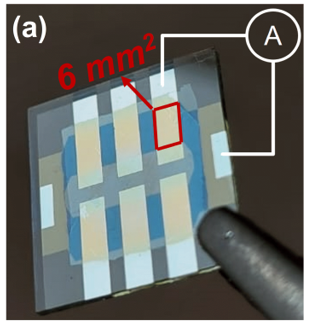Summary
- Profile Type
- Technology offer
- POD Reference
- TODE20230919004
- Term of Validity
- 19 September 2023 - 18 September 2025
- Company's Country
- Germany
- Type of partnership
- Investment agreement
- Research and development cooperation agreement
- Targeted Countries
- All countries
Contact the EEN partner nearest to you for more information.
Find my local partner
General information
- Short Summary
- Most optical sensors require an external supply voltage - not so the novel scalable photodetector of a German university. This photodetector can also be processed or manufactured on a foil basis using the MOCVD process. Possible applications include implants without a battery for medical technology. The university offers a license agreement and/or a technology cooperation agreement.
- Full Description
-
Photodetectors and optoelectronic sensors usually need a power supply for the internal photoelectric effect to convert light into an electrical signal.
That is not the case with the invention of a German university, the self-sufficient photodetector, which dispenses with any external power supply. It does this with a heterojunction of two different transition metal dichalcogenides. The different chemical potentials of the two materials separate the charge carriers that the light generates. The heterojunction is also embedded in specifically adapted hole or electron transport layers located above and below it to conduct energy from the charge carrier to the outer metallic contacts with as little loss as possible. To manufacture transition metal dichalcogenides of nm thickness, a MOCVD method is used that is familiar from the semiconductor industry and known to be scalable. The process can also be applied to plastics.
This invention is advantageous in such areas as the manufacture of optoelectronic sensors whose conceptual design prohibits external power sources, as is the case for biocompatible optical sensors in medical technology. Self-sufficient photodetector concepts allow reduction of component size, manufacturing complexity, and the associated costs. Voltage-free operation allows in situ and remote applications, especially for IoT.
The university offers a licensing agreement to companies operating in the fields of electrical engineering, semiconductor technology, photodetectors, and optical sensors. If there is interest in further development of the process, the university also offers technological cooperation. - Advantages and Innovations
-
The main advantages and innovative aspects about this technology offer are:
- No external power source required
- Energy-self-sufficient
- Scalable detectors
- Uses the MOCVD method
- Flexible substrate-capable manufacturing process - Stage of Development
- Lab tested
- Sustainable Development Goals
- Goal 9: Industry, Innovation and Infrastructure
- IPR status
- IPR applied but not yet granted
- IPR notes
- Registration with the German Patent and Trademark Office and other subsequent international applications are possible in the priority year.
Partner Sought
- Expected Role of a Partner
- The university offers a licensing agreement to companies operating in the fields of electrical engineering, semiconductor technology, photodetectors, and optical sensors. If there is interest in further development of the process, the university also offers technological cooperation.
- Type and Size of Partner
- Other
- SME 11-49
- Big company
- SME <=10
- SME 50 - 249
- Type of partnership
- Investment agreement
- Research and development cooperation agreement
Dissemination
- Technology keywords
- 005006006 - Sensors/Multisensor Technology, Instrumentation
- 02007022 - Conductive materials
- 05003002 - Optics
- 02007012 - Optical Materials
- 001001004 - Electronic engineering
- Market keywords
- 03001009 - Other electronics related (including keyboards)
- 03004003 - Other electronics related equipment
- 08001001 - Plastic fabricators
- 08001020 - Electronic chemicals
- Targeted countries
- All countries

